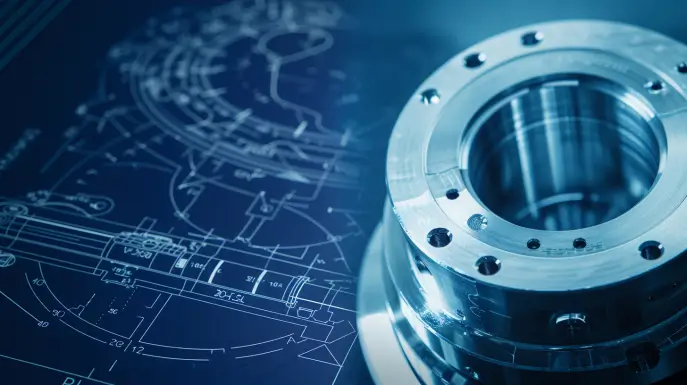CNC Machining Brass
- Exceptional Corrosion and Fatigue Resistance: Ideal for aerospace and medical industries.
- Precision:0.001mm
- Fast Turnaround Times: Receive your parts in just 1-7 days
- Certified Quality: ISO9001:2015 and IATF16949 certified processes for top-quality results.
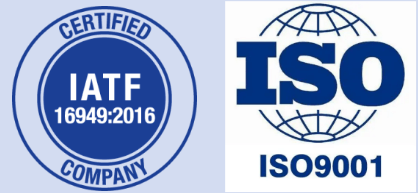
Ensuring 0.001mm Precision in CNC Brass Machining
At Modo Rapid, we offer high precision in our brass machining processes, achieving tolerances up to ±0.001 mm.
Our commitment to tight tolerances ensures your components meet the strictest standards, essential for your critical applications.
Brass Material Selection
Which brass alloy is best for my application and what is the difference between C360 and C260?
Selecting the right brass alloy is crucial for ensuring optimal performance and durability. The primary difference between C360 and C260 brass lies in their composition and mechanical properties. C360 brass, known for its excellent machinability, is ideal for applications requiring high precision and ease of machining. It’s commonly used in electronic components, fittings, and valve parts.
C260 brass, also known as cartridge brass, offers a good balance of strength and ductility. It’s widely used in applications requiring corrosion resistance and moderate strength, such as decorative items, automotive radiators, and musical instruments.
What brass alloys can I choose?
- C360: Known for its excellent machinability and used in electronic components, fittings, and valve parts.
- C260: Offers good strength and ductility, suitable for decorative items, automotive radiators, and musical instruments.
- C230: Also known as red brass, it has excellent corrosion resistance and is used in plumbing fixtures and marine applications.
- C280: Commonly used for architectural applications due to its good strength and corrosion resistance.
- C353: Provides good machinability and is often used in lock components, gears, and valve stems.
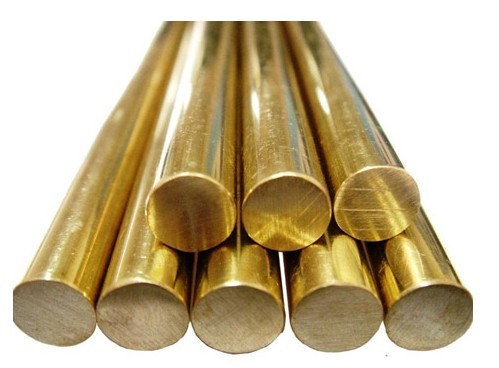
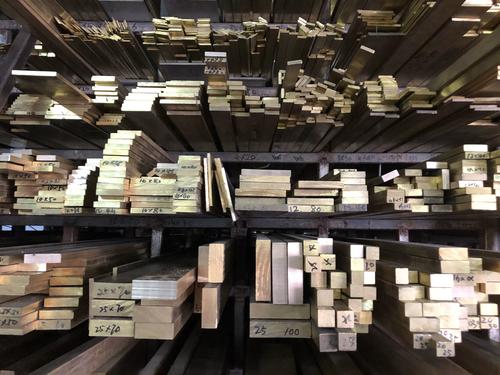
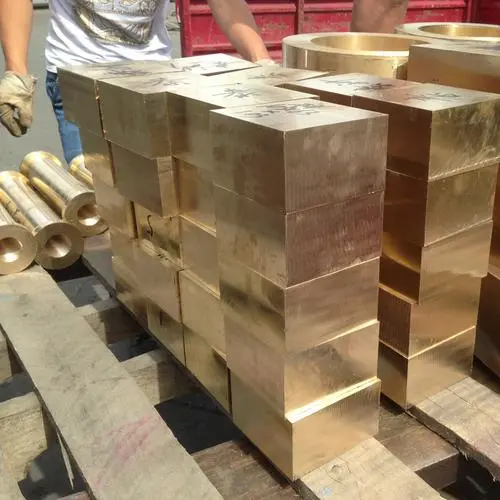
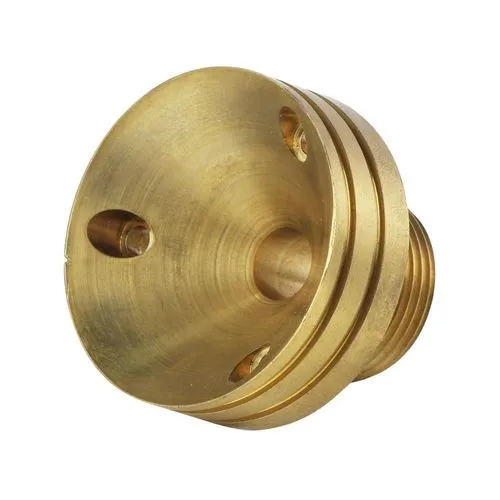
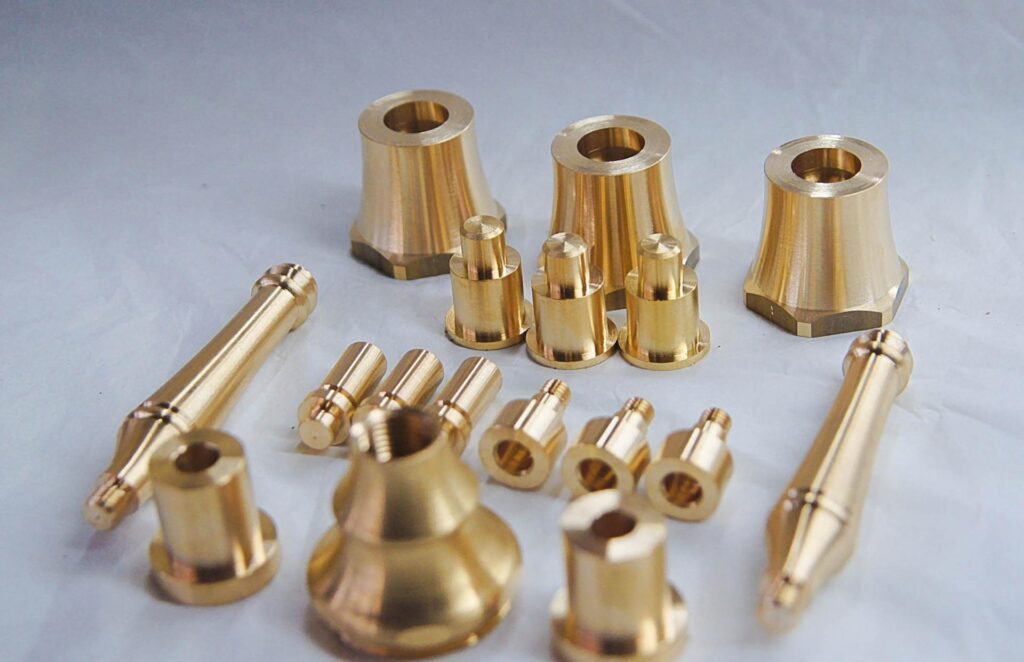
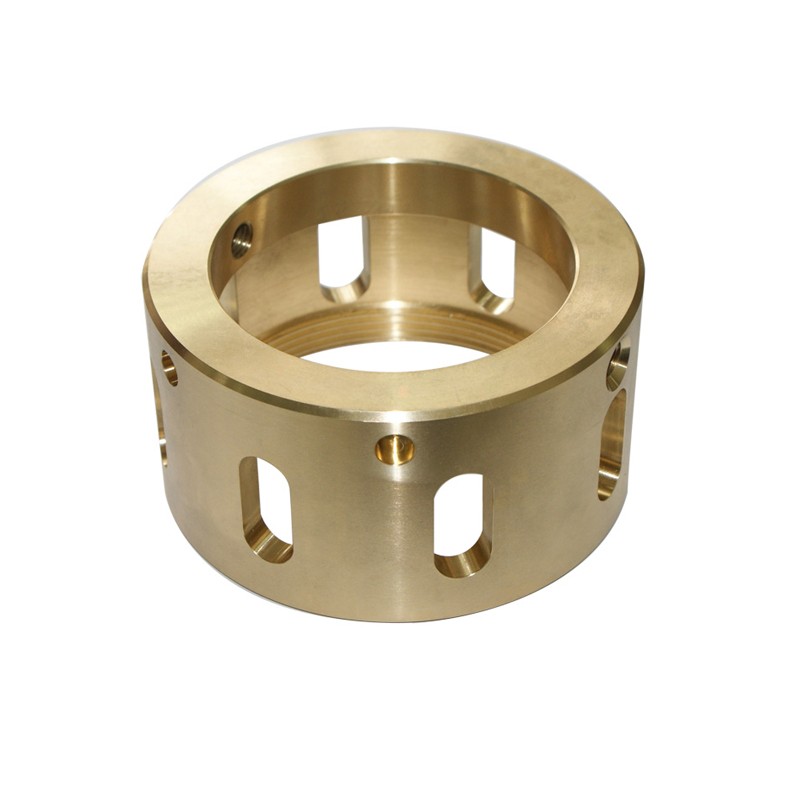
How Modo Rapid Ensures Your Brass Parts Remain Deformation-Free
Brass is a versatile material, but machining it requires precision. At Modo Rapid, we ensure your brass parts maintain their integrity throughout the CNC machining process.
Heat Buildup
Brass alloys can cause significant tool wear and heat at the contact point. We manage this by reducing the CNC machine RPM and using a larger chip load. Our high-pressure coolant systems ease the strain on cutting tools, ensuring high-quality brass parts for you.
Galling
Commercially pure brass can become gummy and stick to the cutting tool. To prevent this, we use high-pressure coolant and ensure swift chip removal. This mitigates heat buildup and extends tool life, delivering precise parts that meet your specifications.
Workholding
Brass’s properties require a firm grip during CNC machining. We maintain a tight hold and ensure constant tool motion without interruptions. This prevents deformation and guarantees that your parts are machined to perfection.
At Modo Rapid, we understand the challenges of machining brass and employ expert techniques to ensure your parts remain flawless and deformation-free.
What are the maximum part sizes and complex geometries you can handle?
- Part Sizes: We can machine parts with maximum dimensions of 1500mm x 800mm x 600mm, meeting the needs of most industrial applications.
- Complex Geometries: Our 5-axis and 4-axis CNC machining centers can precisely machine complex geometries, including internal channels, intricate surfaces, and high-precision apertures. Our equipment can manage fine features and tight tolerances, ensuring your design intentions are perfectly realized.
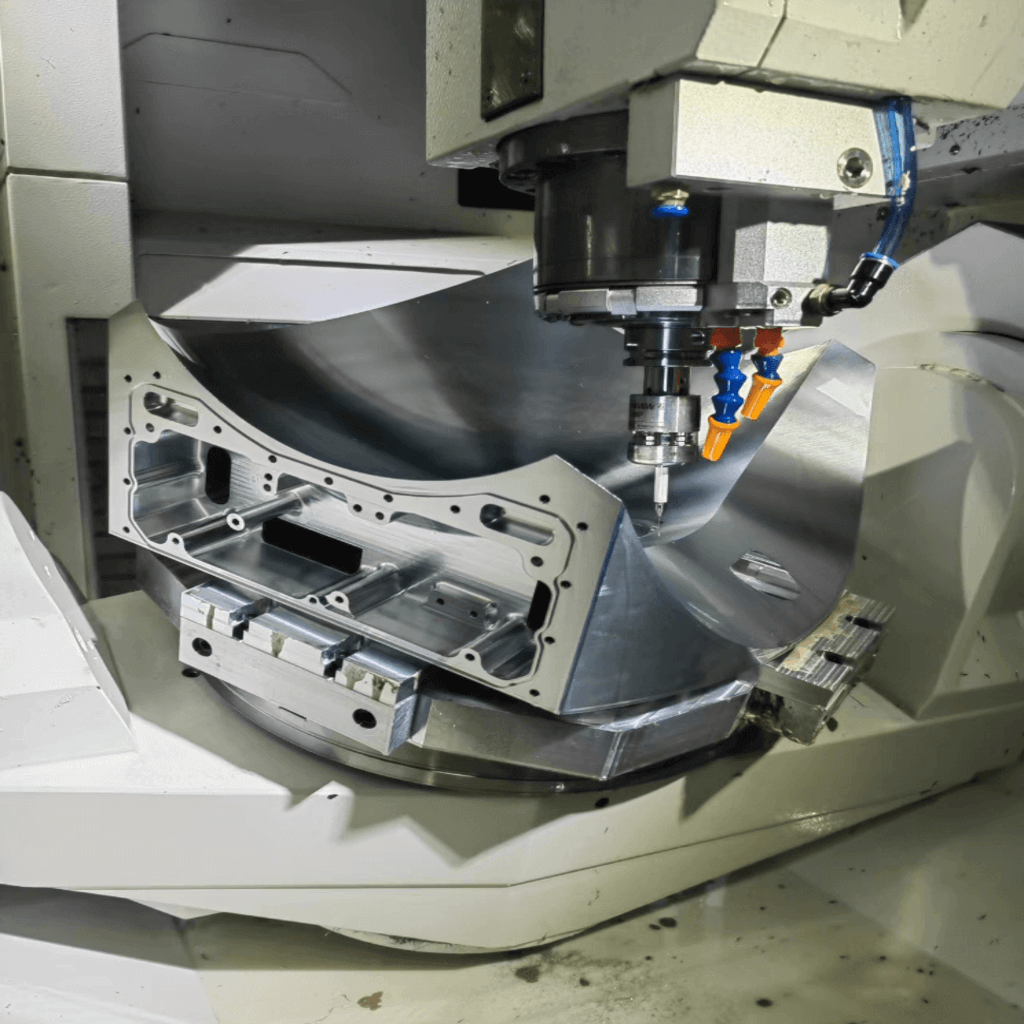
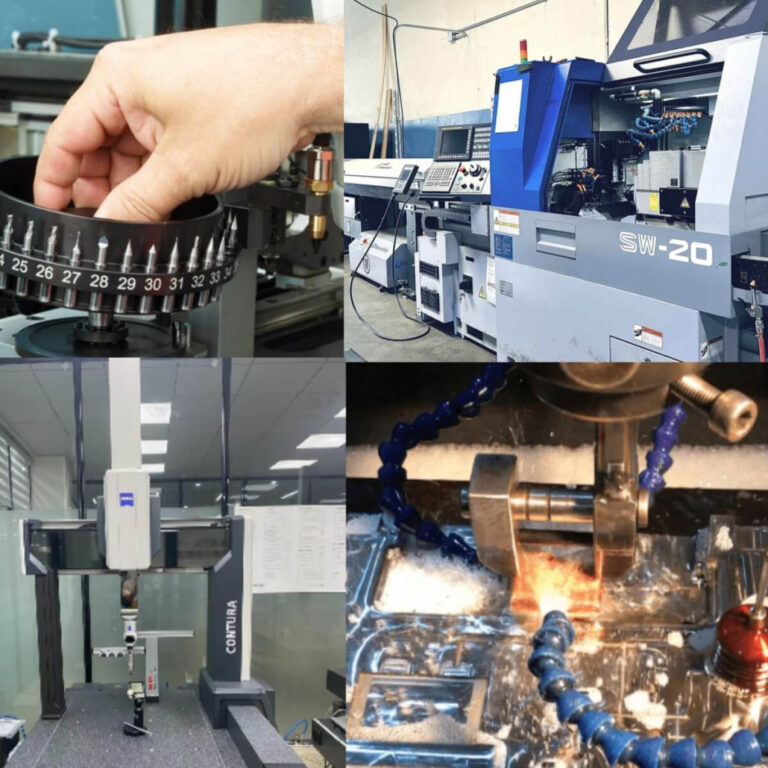
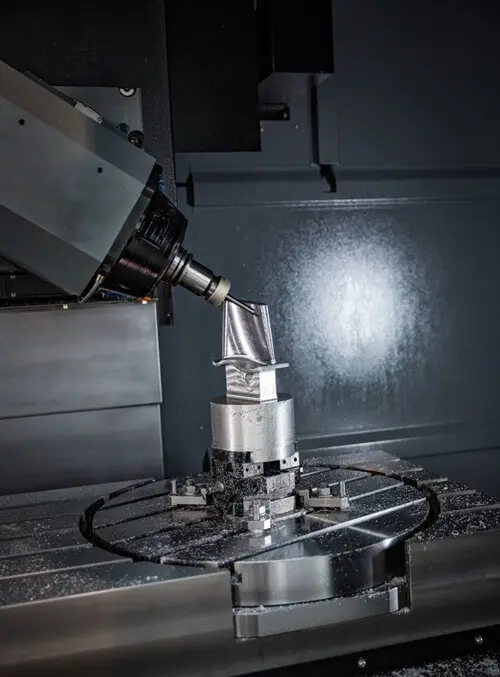
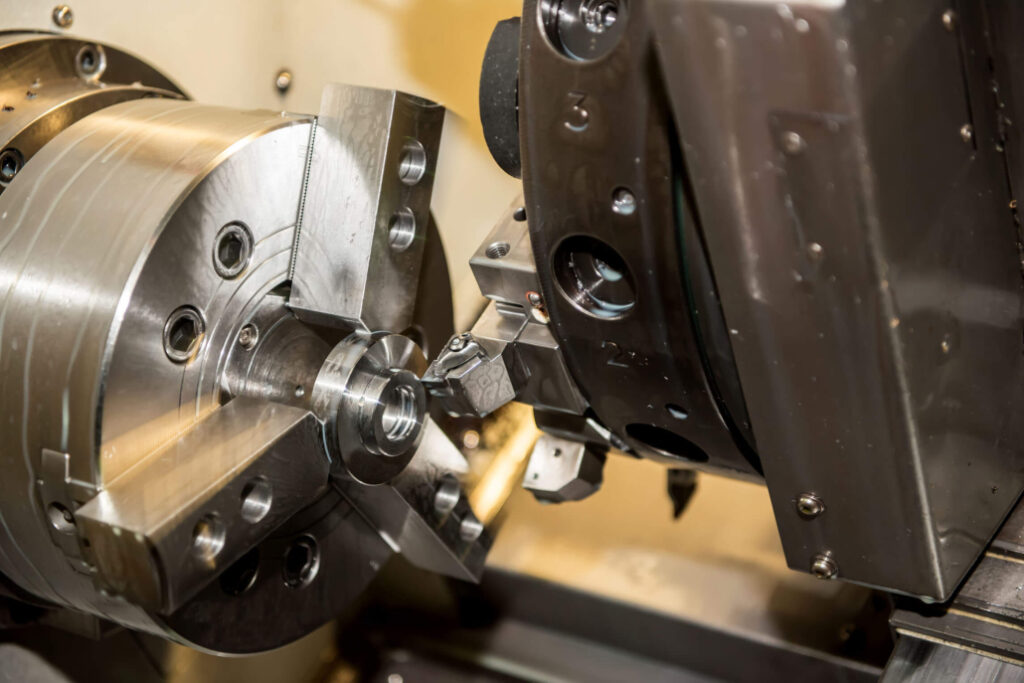
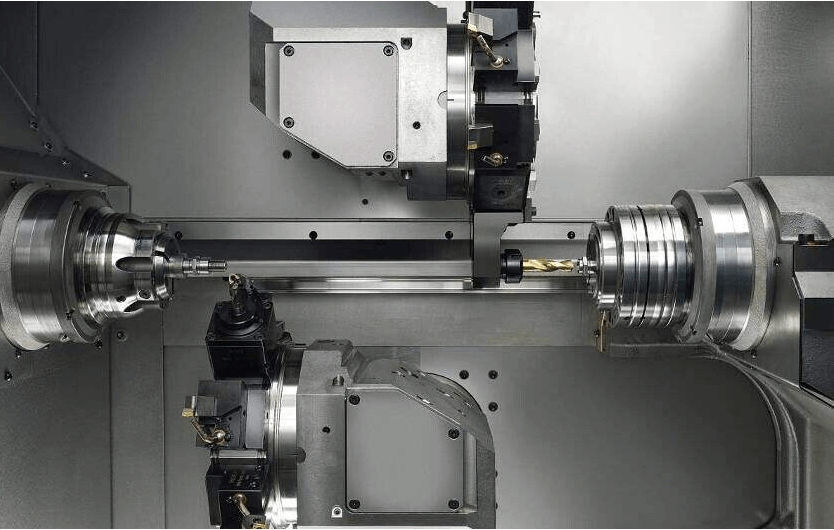
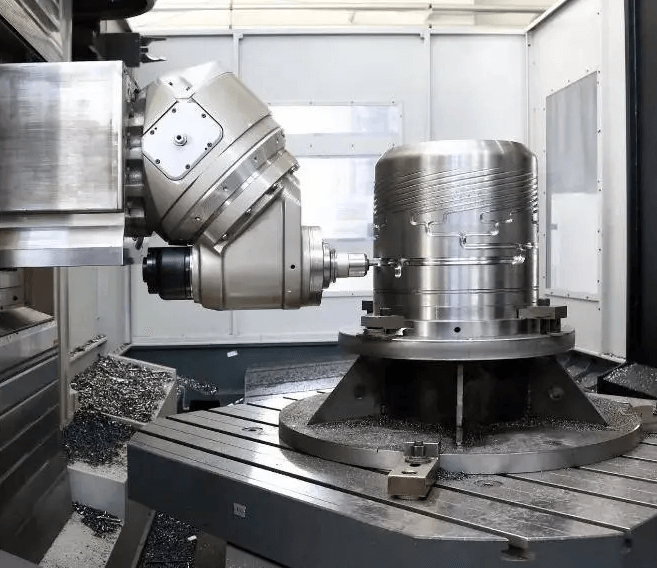
What advanced CNC equipment do you have for machining brass alloys?
- 5-Axis CNC Machining Centers: Capable of producing complex geometries and intricate designs, ensuring high accuracy and smooth finishes on brass components.
- High-Speed CNC Mills: Equipped with robust spindles and high feed rates, ideal for efficiently machining brass while maintaining tight tolerances.
- Multi-Tasking CNC Lathes: These machines combine milling and turning capabilities, allowing for versatile and efficient production of brass parts in a single setup.
- Precision CNC Grinders: Essential for achieving the fine surface finishes and exact dimensions required for high-performance brass components.
- EDM (Electrical Discharge Machining): Utilized for cutting intricate shapes and hard-to-machine areas, providing high precision without inducing stress in the brass material.
- Mill-turn machine: Combines turning and milling functions in one, completing complex multi-axis machining on a single setup. It improves accuracy and efficiency, ideal for high-precision parts. For brass alloy parts, its high rigidity and multi-axis capabilities reduce machining time and ensure quality. Using efficient tools and optimized parameters further enhances production speed and reliability.
Brass Parts Finishes
Surface Finish Options
- Smoothing
- Polishing
- Bead blasting
- Brushing
- Painting
- Chroming
- Metallizing
- PVD coating
- Powder coating
- Electrophoresis
Impact of Surface Preparation on Brass Parts
Surface preparation significantly influences both the performance and appearance of brass parts:
- Enhanced Durability: Proper surface preparation can increase the lifespan of brass parts by improving resistance to corrosion and wear.
- Improved Functionality: A well-prepared surface can reduce friction and improve the efficiency of mechanical components.
- Aesthetic Appeal: High-quality finishes enhance the visual appeal of brass parts, making them suitable for both functional and decorative applications.
- Adhesion of Coatings: Proper preparation ensures better adhesion of subsequent coatings or treatments, ensuring consistent and long-lasting finishes.
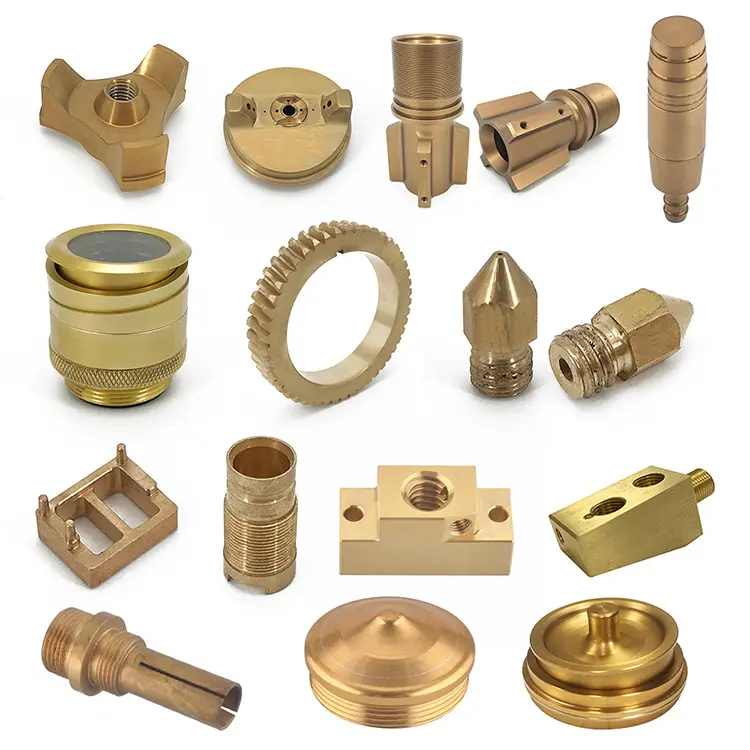
Brass Part Surface Finish
Cost Calculation for Custom Brass Alloy Parts
The cost of machining brass parts at Modo Rapid is determined by several key factors:
- Material Costs: The price of brass, which is higher compared to other metals, is a significant factor.
- Complexity of Design: Parts with intricate designs and tight tolerances require more time and specialized tools, increasing costs.
- Machining Time: Longer machining times due to brass’s properties and the need for precise operations.
- Surface Finishes: Additional processes such as anodizing, polishing, or coating add to the total cost.
- Tool Wear: Brass’s properties lead to faster tool wear, contributing to higher tool replacement costs.
Volume Discounts and Minimum Order Quantity
At Modo Rapid, we offer volume discounts to accommodate larger production runs. The discounts increase with the order size, making it more cost-effective for bulk purchases. We understand the diverse needs of our clients, so we have set a flexible minimum order quantity to cater to both small and large projects.
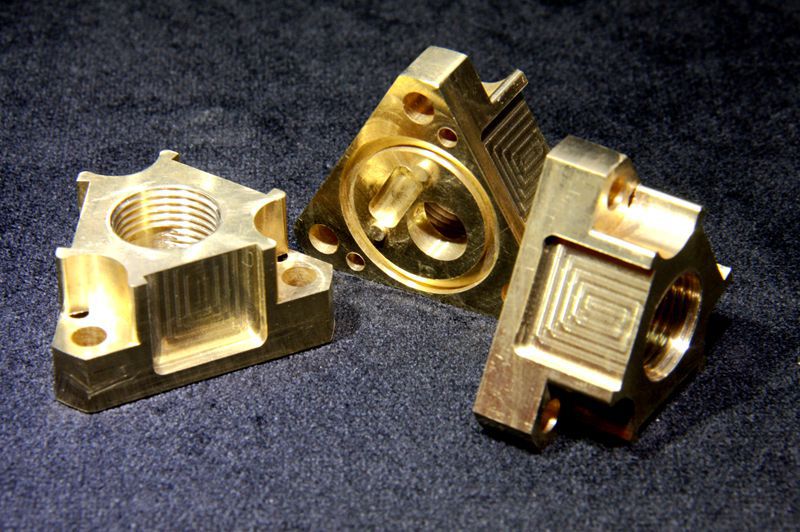
Example: Cost Calculation
Let’s assume we have a brass alloy part with the following specifications:
- Dimensions: 100mm x 50mm x 10mm
- Complexity: Medium complexity geometry
- Surface Finish: Anodized
- Quantity: 50 pieces
Material Cost
- Price of brass alloy: $10/kg
- Weight per part: 0.4 kg
- Total material cost: 50 pieces x 0.4 kg x $10/kg = $200
Machining Cost
- Machining time for medium complexity parts: 1 hour/part
- Machining rate: $60/hour
- Total machining cost: 50 pieces x 1 hour/piece x $60/hour = $3,000
Surface Finish Cost
- Anodizing cost: $5/piece
- Total surface finish cost: 50 pieces x $5/piece = $250
Tool and Equipment Wear
- Brass alloy causes moderate tool wear, requiring periodic replacement
- Estimated tool and equipment wear cost: $150
Other Costs
- Quality control and inspection fees: $200
- Packaging and shipping fees: $100
Total cost = Material cost + Machining cost + Surface finish cost + Tool and equipment wear + Other costs
Total cost = $200 + $3,000 + $250 + $150 + $300 = $3,900
Cost per part = Total cost / Quantity
Cost per part = $3,900 / 50 pieces = $78/piece
This example provides a rough estimate of the cost. Actual costs will vary based on specific designs, process requirements, and quantities. To receive an accurate quote, please provide detailed mechanical drawings and technical specifications. We will then provide a customized quote based on your needs.
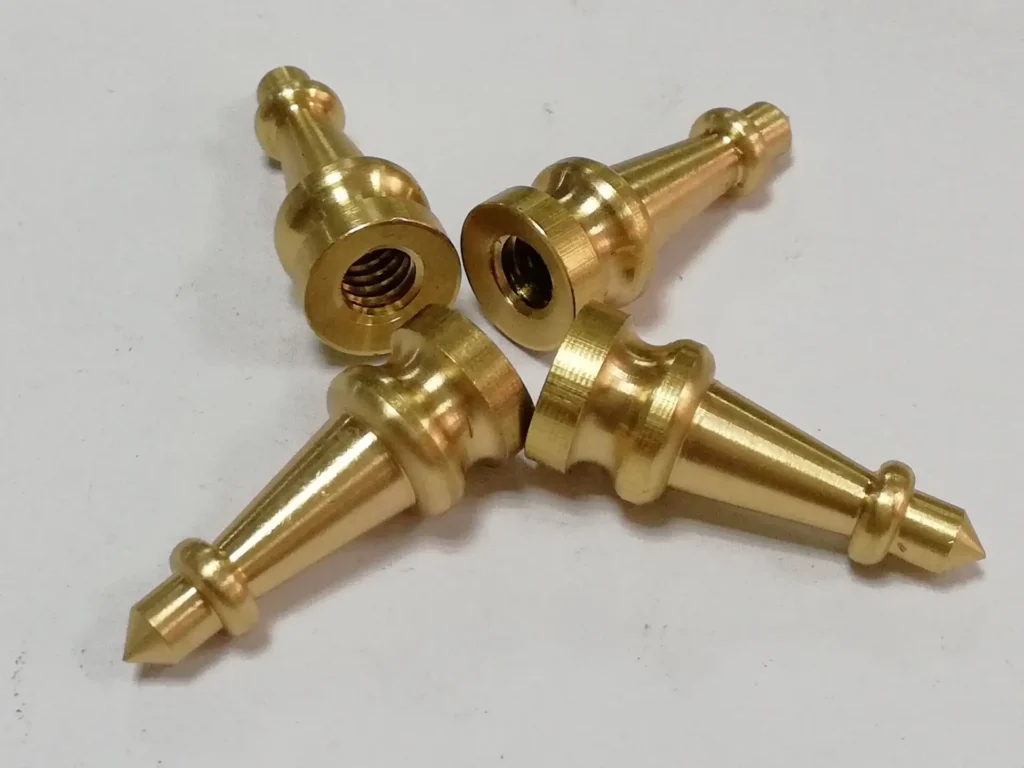

Production Lead Time and Delivery Time
Typical Lead Time from Order Placement to Delivery
At Modo Rapid, our standard lead time from order placement to delivery typically ranges from 1 to 2 weeks. This timeline includes:
- Order Confirmation and Planning: 1-2 days
- Procurement of Materials: 2-3 days
- Machining and Production: 5-7 days
- Quality Control and Inspection: 1-2 days
- Packaging and Shipping: 1-2 days
How Do We Deal With Your Expedited Orders?
Yes, we can shorten the production time for expedited orders. If you require faster delivery, please inform us at the time of order placement. Expedited orders are subject to an additional fee and depend on the current production schedule and the complexity of the parts. By prioritizing your order, we can often reduce the lead time to 1-7 days.
Our team is committed to meeting your deadlines and ensuring that you receive your parts on time, even for urgent projects. Please contact us directly to discuss your specific requirements and expedited options.
How Do We Ensure Consistency and Quality for Each Batch of Parts?
Quality Control Measures:
Advanced Inspection Tools: Utilization of CMMs (Coordinate Measuring Machines), laser scanners, and precision gauges to measure critical dimensions and geometries.
In-Process Monitoring: Continuous monitoring during machining processes to detect and correct deviations in real-time.
Material Verification: Comprehensive material testing, including chemical composition and mechanical property analysis, to ensure conformity with specifications.
Surface Finish Analysis: Employing profilometers and other surface finish measurement tools to guarantee that all parts meet required surface quality standards.
Environmental Controls: Maintaining a controlled environment in production areas to minimize the impact of temperature and humidity variations on machining accuracy.
Ensuring Consistency and Quality for Each Batch:
Standard Operating Procedures (SOPs): Strict adherence to standardized processes for each operation to ensure uniformity across all production stages.
First Article Inspection (FAI): Conducting thorough inspections on the first piece of each batch to verify that it meets all specified requirements before proceeding with full-scale production.
Statistical Process Control (SPC): Applying SPC techniques to monitor and control the manufacturing process, ensuring that variations are kept within acceptable limits.
Lot Traceability: Implementing comprehensive traceability systems to track materials and processes for each batch, allowing for easy identification and resolution of any quality issues.
Final Inspection and Testing: Performing rigorous final inspections and functional tests on all parts before shipment to confirm that they meet client specifications and quality standards.
Our commitment to stringent quality control measures ensures that you receive consistent, high-quality parts in every batch, supporting your projects’ success and reliability.
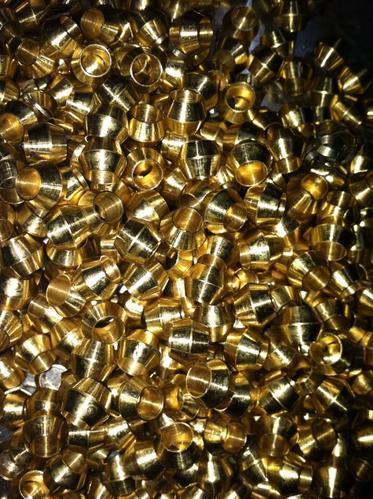
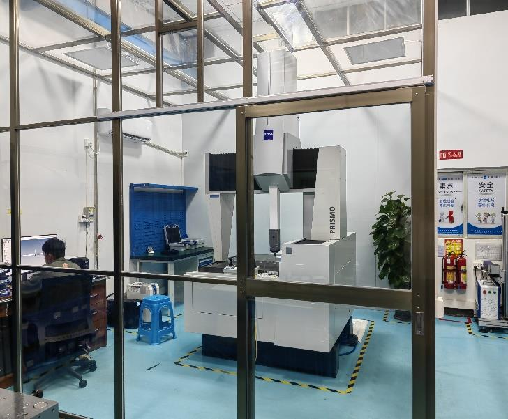
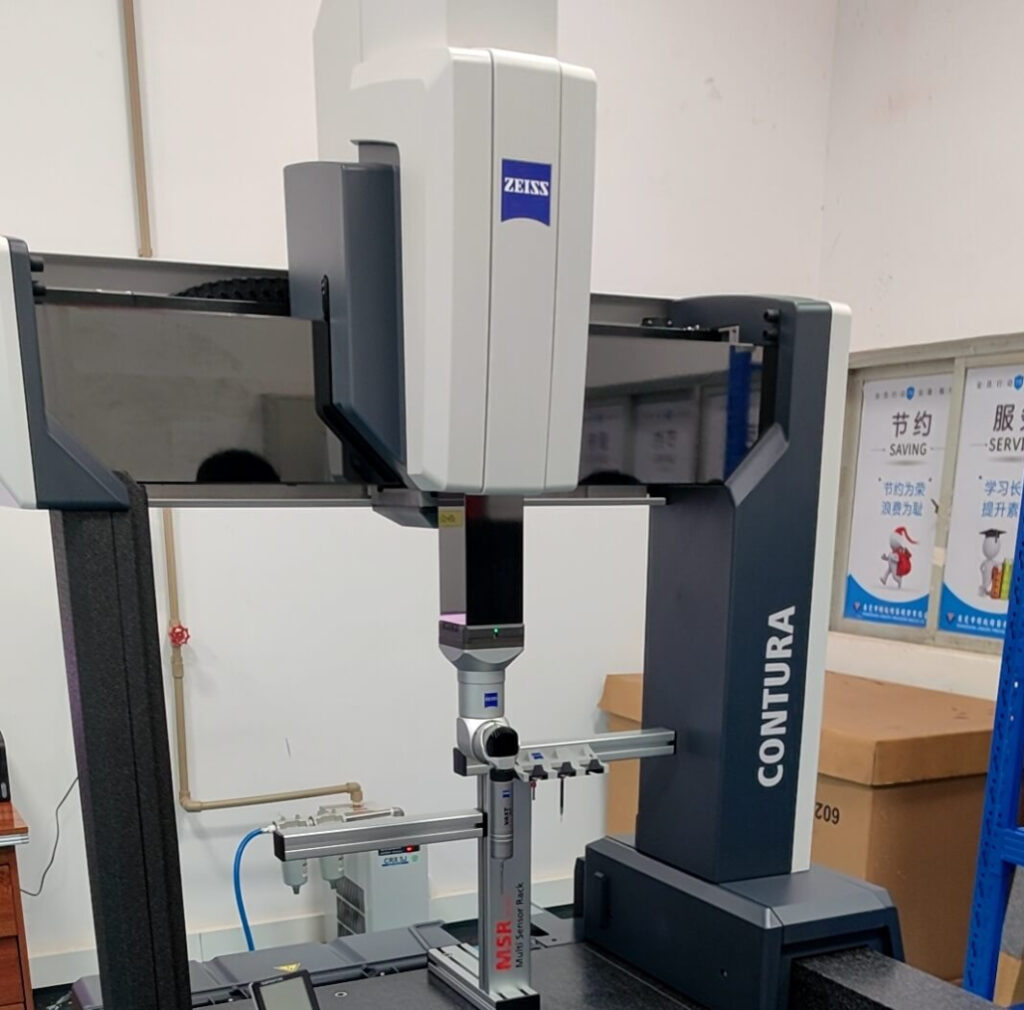
Why Modo Rapid is Your Trusted Partner for Brass Projects
At Modo Rapid, we combine extensive experience, advanced technology, and a skilled team to deliver high-quality brass parts.
Rich Experience: Over a decade in brass machining across aerospace, medical, and automotive industries.
Advanced CNC Technology: Cutting-edge equipment for precision and efficiency in complex geometries.
Skilled Team: Expert engineers and technicians dedicated to quality and overcoming brass’s unique challenges.
Stringent Quality Control: Rigorous measures at every stage ensure consistent, reliable parts.
Customer-Centric Approach: Tailored solutions with open communication and collaboration.
Innovative Solutions: Continuous investment in R&D for advanced, competitive solutions.
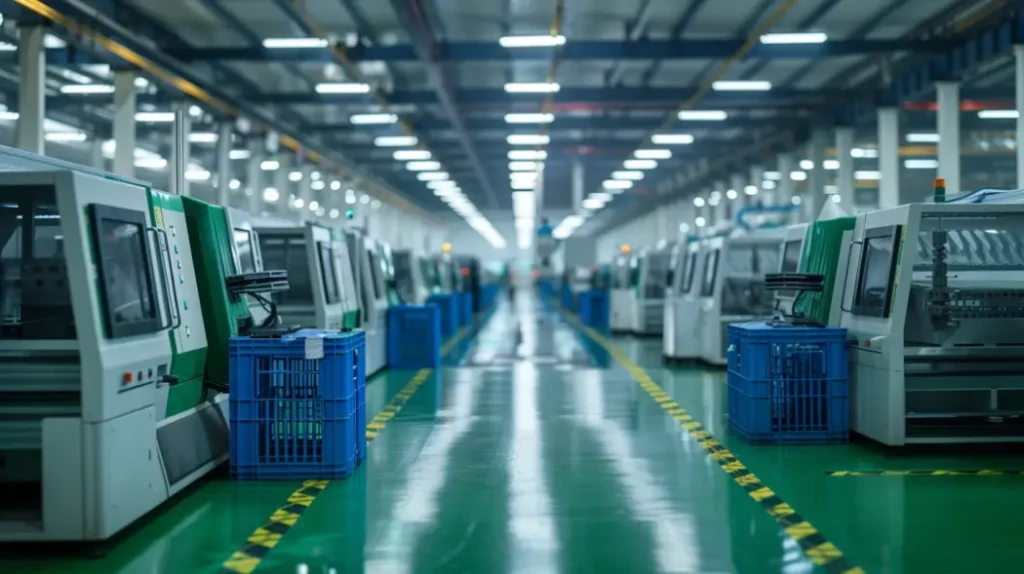
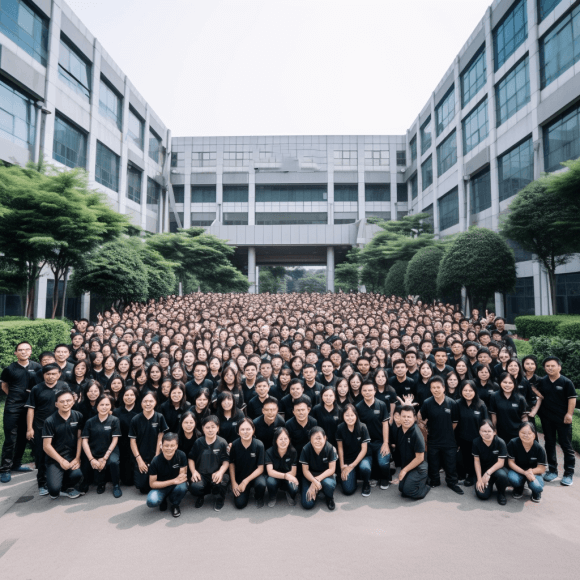
Client Feedback & Reviews
Ensuring Your Compliance with Environmental and Industry Standards
At Modo Rapid, we prioritize your need for environmentally responsible and industry-compliant manufacturing processes.
Meeting Your Environmental and Industry Standards: Our operations are designed to align with stringent environmental and industry regulations, ensuring that your projects not only meet but exceed these standards.
Certifications That Matter to You:
- ISO 9001: Guaranteeing consistent quality and continuous improvement in every product you receive.
- ISO 14001: Demonstrating our commitment to environmental management, so you can trust our sustainable practices.
- RoHS Compliance: Ensuring our materials are free from hazardous substances for your safety and peace of mind.
- REACH Compliance: Managing chemicals responsibly in our products to meet your regulatory requirements.
- IATF 16949: Meeting the rigorous quality management standards required for the automotive industry, ensuring the highest quality for your automotive projects.
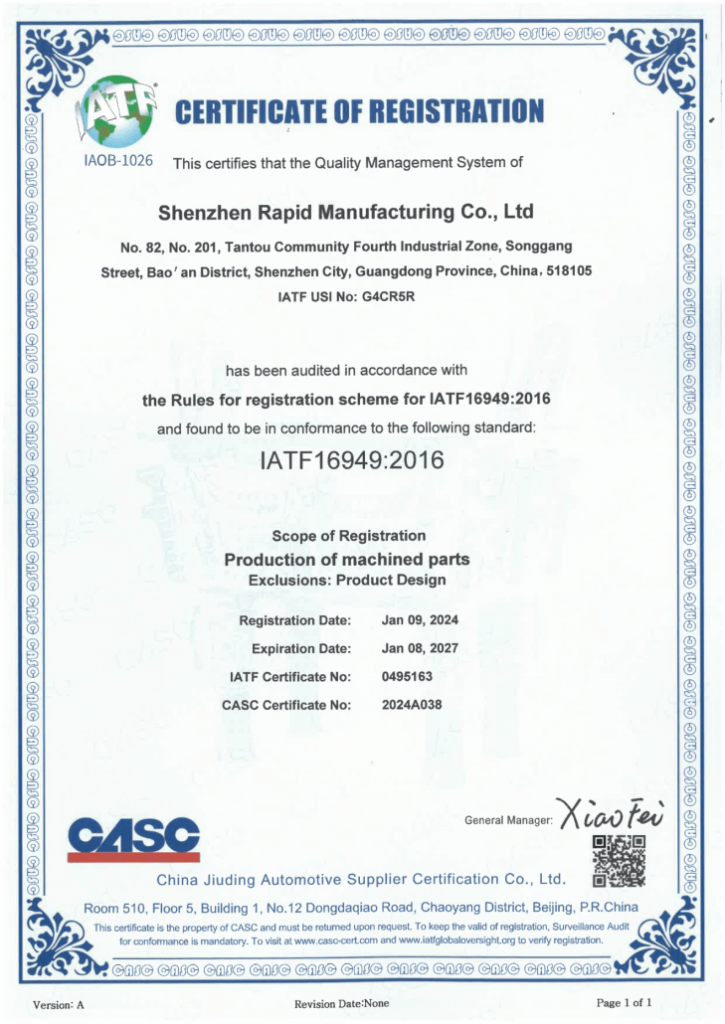

FAQ
C360 brass, also known as free-machining brass, is considered the best for CNC machining due to its excellent machinability and ability to produce high-quality, precise components.
Carbide-tipped bits are the best for machining brass. They offer durability and maintain sharpness, allowing for precise cuts and smooth finishes.
C360 and C36000 brass are essentially the same material, with C36000 being the Unified Numbering System (UNS) designation for free-machining brass.
C360 brass is the easiest to machine, offering superior machinability and high-quality finishes with minimal tool wear.
Carbide inserts with a sharp edge and positive rake angle are ideal for cutting brass. They ensure clean cuts and prolong tool life.
Yes, carbide tools are highly effective for cutting brass, providing excellent durability and sharpness for precise machining.
- Use sharp tools with a positive rake angle.
- Employ high cutting speeds and moderate feed rates.
- Utilize proper lubrication to prevent tool wear and overheating.
- Ensure secure workholding to avoid vibration and chatter.
Soluble oil or light mineral oil is recommended for machining brass, providing effective cooling and lubrication.
Brass is not typically used for type making because it is softer and wears out more quickly compared to other materials like steel.
- C360 (Free-Cutting Brass)
- C260 (Cartridge Brass)
- C230 (Red Brass)
- C280 (Muntz Metal)
- C353 (Leaded Brass)
C360 (C36000) is the grade known as free-cutting brass.
C360 brass is the best for milling due to its excellent machinability and ability to produce smooth finishes.
Yes, brass is generally easier to machine than aluminum due to its superior machinability and lower tendency to gall.
Yes, 360 brass and C36000 refer to the same material, with C36000 being the UNS designation.
Yes, brass is an alloy primarily composed of copper and zinc, with varying proportions depending on the type of brass.
C260 brass, known as cartridge brass, has good corrosion resistance and formability, while C360 brass offers superior machinability.
C464 brass, also known as naval brass, has higher strength and corrosion resistance compared to C360 brass, which is known for its excellent machinability.
WD-40 can clean brass, but it is better used as a lubricant and rust preventative rather than a primary cleaning agent for brass.
C385 brass, also known as architectural bronze, has a higher zinc content and is used for decorative applications, whereas C360 brass is optimized for machinability.
Bronze is typically more valuable than brass due to its higher copper content and superior mechanical properties.
Yes, zinc adds strength and hardness to brass, improving its mechanical properties.
Custom Brass Parts for Your Project!
Experience tailored excellence with our high-precision brass parts. We manufacture to your exact specifications, ensuring top-quality results and cost efficiency.
At Modo Rapid, we prioritize your project’s success, offering unmatched precision and competitive prices. Choose us for seamless, customized brass part solutions. Send us your specifications and let us help you achieve your goals.
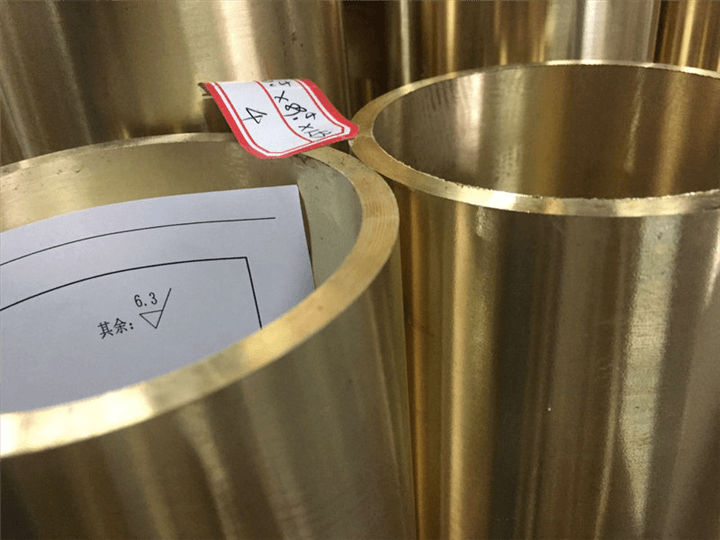
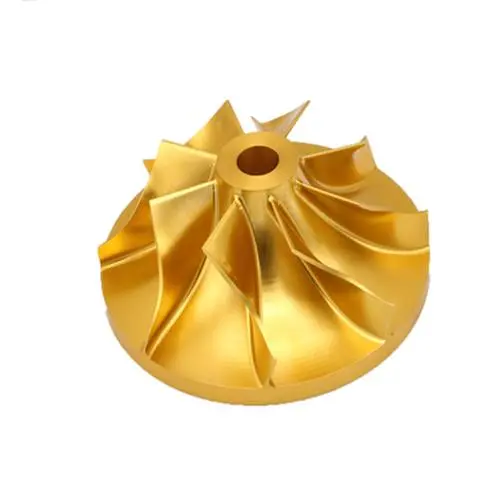

Get a quote for custom brass parts
